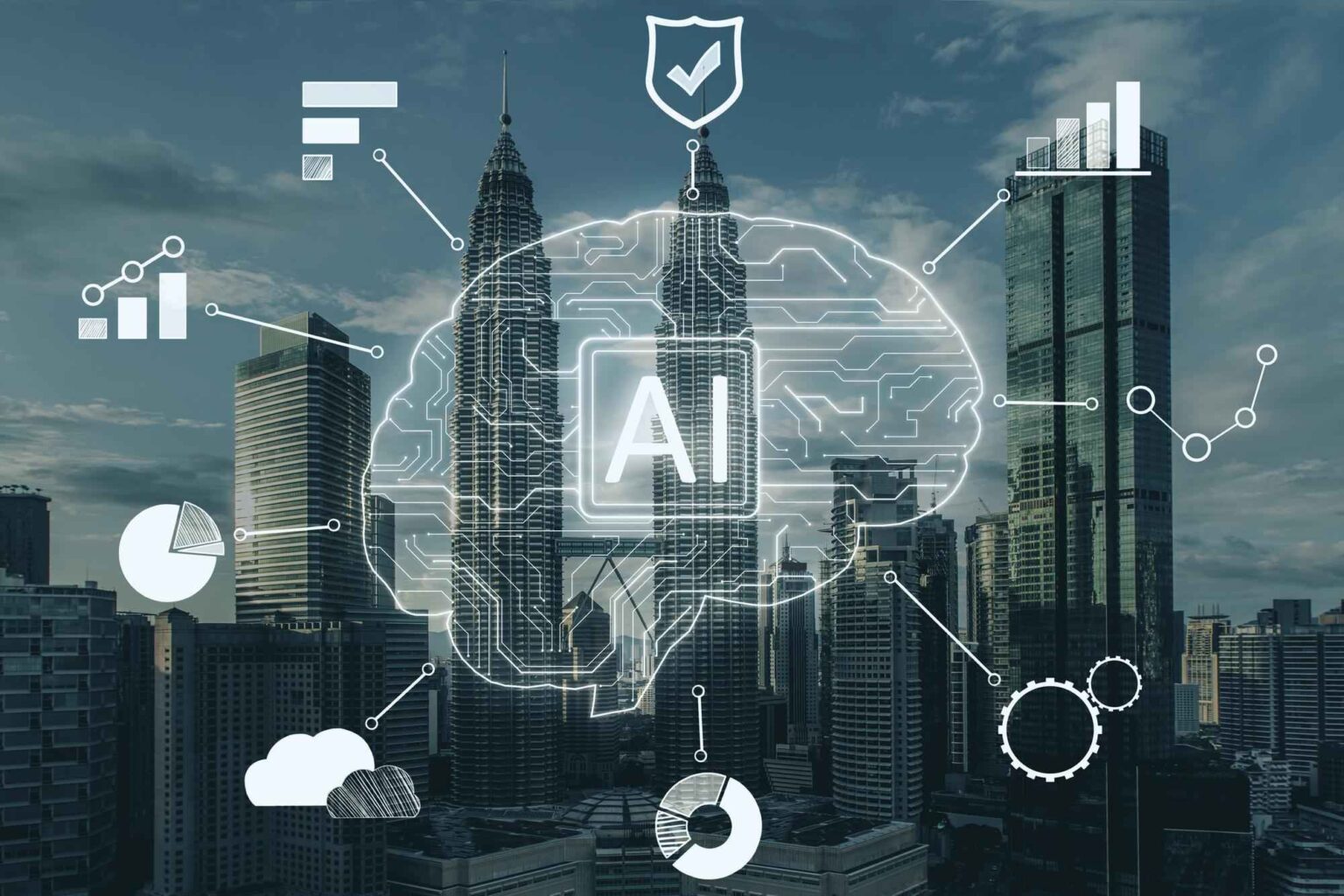Artificial Intelligence (AI) plays a crucial role in smart cities by enabling predictive maintenance and automated services, leading to improved efficiency, cost savings, and enhanced quality of life. Here are key aspects of AI in smart cities:
Predictive Maintenance: AI algorithms analyze data from various sensors and IoT devices to detect patterns and anomalies that indicate potential maintenance issues in critical infrastructure such as transportation systems, utility networks, and public facilities. By predicting maintenance needs in advance, cities can schedule repairs and replacements proactively, minimizing downtime, reducing costs, and ensuring the reliable functioning of essential services.
Smart Grid Management: AI helps optimize the management of smart grids by analyzing data on energy production, consumption, and distribution. AI algorithms can predict energy demand, balance energy supply and demand, and optimize energy distribution to minimize wastage and ensure stable and efficient power delivery. This leads to more reliable energy services, reduced energy costs, and improved sustainability.
Intelligent Traffic Management: AI-powered systems analyze real-time traffic data from cameras, sensors, and other sources to optimize traffic flow, manage congestion, and improve transportation efficiency. AI algorithms can adjust traffic signal timings dynamically, predict traffic patterns, and suggest alternative routes to reduce congestion, minimize travel times, and enhance overall transportation experience.
Automated Services and Chatbots: AI-based virtual assistants and chatbots facilitate automated services and interactions with citizens. These systems can handle routine inquiries, provide information on city services, and offer personalized recommendations. AI-powered chatbots enable round-the-clock assistance, reduce response times, and enhance citizen engagement by providing timely and accurate information.
Smart Waste Management: AI algorithms analyze data from waste sensors, collection routes, and historical patterns to optimize waste management processes. AI can predict waste generation rates, optimize collection schedules, and identify areas with high waste accumulation. This enables efficient waste collection, reduces costs, minimizes environmental impact, and improves cleanliness in the city.
Intelligent Public Safety Systems: AI-based systems enhance public safety by analyzing data from surveillance cameras, social media, and other sources to detect and respond to potential security threats. AI algorithms can identify suspicious activities, detect unusual behavior, and alert authorities in real-time, enabling proactive measures to maintain safety and security in the city.
Smart City Analytics: AI enables advanced analytics capabilities for smart cities, facilitating data-driven decision-making and policy planning. AI algorithms analyze vast amounts of data from various sources to extract insights, identify patterns, and make predictions. These insights help city authorities understand citizen needs, optimize resource allocation, and plan for future development.
Environmental Monitoring and Management: AI supports environmental monitoring in smart cities by analyzing data from sensors and satellite imagery to assess air quality, noise levels, water quality, and other environmental factors. AI algorithms can detect pollution hotspots, predict environmental risks, and provide real-time information to citizens and authorities. This enables effective environmental management and the implementation of measures to improve sustainability.
AI in smart cities enables proactive and automated systems that enhance efficiency, optimize resource allocation, and improve the overall quality of life for residents. By leveraging AI technologies, smart cities can create sustainable, resilient, and citizen-centric urban environments.



